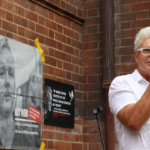Coronial Inquests in NSW: Mandatory Inquests, Discretionary Inquests and Appeals

There will be no full coronial inquest into the death of the woman who accused Christian Porter of historical sexual assault.
The South Australian Coroner, David Whittle, has officially ended the investigation and made a confidential finding into the cause of Kate’s death, but has ruled out a full Coronial Inquest.
It’s reported that the family of the woman (known only as Kate) requested that there be no inquest, and also requested the findings of the Coroner in relation to her death remain private.
Last possible avenue of inquiry into allegations
The Coronial Inquest was considered to be the last possible avenue of inquiry into the sexual assault allegations, and, in particular, the subsequent way that those allegations were handled by New South Wales Police, which have been the subject of much criticism over delays and mishandling the criminal investigation.
Former Attorney General Christian Porter has always strongly maintained his innocence. New South Wales Police acknowledged in a report to NSW Parliament that they never had the opportunity to commence an investigation into the incident before Kate withdrew her complaint.
Former NSW Police Chief Mick Fuller told Parliament that his officers could not travel interstate to investigate the serious criminal case and take central evidence because of pandemic restrictions in place at the time. He also claimed that requesting South Australian police detectives to act on behalf of the NSW Police force, and speak to Kate who lived in their jurisdiction at the time, was ‘not routine.’
She had alleged Mr Porter sexually assaulted her in January 1988 when she was 16 and he was 17.
Kate took her own life in June 2020.
When can a Coroner decide not to hold an inquest
It’s important to know that a coroner does not always decide against holding an investigation at the behest of the family of the deceased. However, concerns of the family are a serious consideration.
When determining whether an inquest should not proceed, a coroner should take into account any concerns raised by the family regarding the circumstances of the death. Relatives rightly expect that their concerns about the death will be carefully considered.
The NSW Coroners Court and the rules relating to Coronial Inquests in our state are primarily regulated by the Coroners Act 2009 (NSW).
Each state and territory in Australia has legislation to regulate such matters.
When are Coronial Inquests mandatory in New South Wales?
Section 27 of the Act sets out the circumstances in which holding a Coronial Inquest is generally mandatory in New South Wales. These are:
- Suspected homicides, not including suicides,
- Cases in which a person dies in custody or as a result of a police operation / the actions of police,
- When the evidence does not clearly or sufficiently determine whether a person has died, for example, when a person is classified as a ‘missing person’ or a body has not been found, and
- When evidence does not sufficiently disclose the identity of the person who has died, or the date, place, cause or manner of their death.
If the circumstances are outside these, the Coroner has broad powers to dispense with an inquest, and will typically do so if the following matters are established:
- The identity of the deceased,
- The date and place of death,
- The location, cause and manner of death,
- An absence of suspicious circumstances, or any issues relating to public health and safety to address.
Appealing the decision
In cases where a coroner decides not to proceed with a coronial inquest, he or she must provide written reasons which are placed on the coronial file, and these notes must provide sufficient detail and evidence addressing the items above, and providing additional summarised information from the post-mortem report.
Under section 29 of the Act, the document is an essential record, and may be used where there is a request for a review of the Coroner’s decision not to pursue an inquest or there is a review of the decision.
A review can be conducted by the State Coroner, and the decision not to hold an inquest can be reversed if there is sufficient reason to do so.
Coroner’s explanation to the media
Coroner David Whittle explained to media that “an exhaustive coronial investigation has been completed” and that he had entered a finding as to the cause of Kate’s death and determined that an inquest will not be held. He has also said that he is “bound by confidentiality obligations and no further information will be released”.
Confidentiality and ‘non-publication’ orders of the Coroners Court NSW
Coroners have the power to make orders prohibiting or suppressing the publication of evidence if it is in the “public interest” to do so. However, the public interest in withholding material taken into evidence must outweigh the principles of open justice.
In that regard, section 75 of the Act provides as follows:
(1) A coroner may make an order under this section
(a “non-publication order”) if it appears to the coroner (whether by reason of information reported or received under Chapter 4 (which relates to reporting of deaths) or during the course of coronial proceedings) that a death or suspected death is self-inflicted.
(2) A non-publication order may prohibit or restrict any or all of the following–
(a) the publication of any report (or any further report) of the proceedings (or any specified part of the proceedings) until after the coroner has made his or her findings or, in the case of an inquest held before a jury, the jury has brought in its verdict,
(b) the publication of any matter (including the publication of any photograph or other pictorial representation) that identifies any particular person–
(i) as being a person whose death or suspected death may have been
self-inflicted, or
(ii) as being a relative of a person whose death or suspected death may have been self-inflicted.
(3) For the purposes of subsection (2)(b), the following persons are relatives of a person whose death or suspected death may have been self-inflicted–
(a) the spouse of that person, a parent of that person, a person who stands in loco
parentis to that person, a guardian of that person or a child of that person,
(b) a person who, at the time of the death or suspected death, was living with that
person as the person’s spouse,
(c) a brother or sister of that person.
(4) To the extent to which a non-publication order prohibits the publication of any matter referred to in subsection (2)(b), the order continues to have effect after the coroner has made his or her findings, or after the jury (if any) has brought in its verdict, but only if the order expressly so provides.
(5) If a finding is made in an inquest to the effect that the death of a person was self-inflicted, a report of the proceedings (or any part of the proceedings) must not be published after the finding unless (and to the extent that) the coroner holding the inquest makes an order permitting the publication of the report.
(6) A coroner may make an order under subsection (5) only if the coroner is of the opinion that it is desirable in the public interest to permit a report of the proceedings (or part of the proceedings) of the inquest to be published.
(7) A person must not contravene (or cause the contravention of)–
(a) a non-publication order, or
(b) the provisions of subsection (5).
The maximum penalty is 10 penalty units ($1,100) or imprisonment for 6 months (in the case of an individual) or 50 penalty units ($5,500) in any other case.







